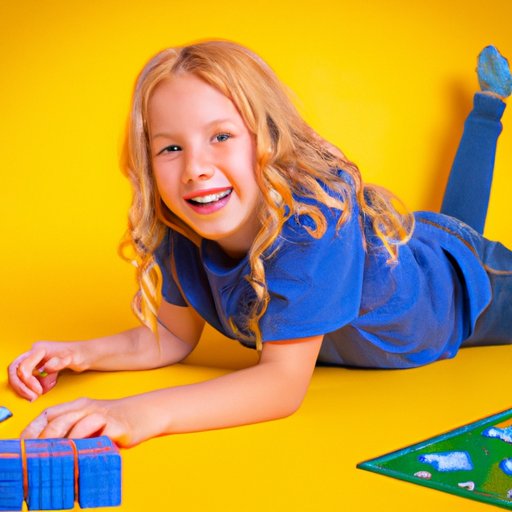Introduction
Play is an essential aspect of childhood and has been linked to various benefits, including promoting physical, cognitive, and emotional growth. However, play is not only limited to children as adults can also benefit from it. In this article, we will explore the importance of play, its benefits, and various types of play, including non-traditional forms of play. We will also discuss how play-based learning is used in schools and homes, the role of play in mental health, and tips for parents and caregivers to encourage play in children.
Exploring the Importance of Play in Childhood Development
Play can be defined as a voluntary activity that is enjoyable and provides a sense of freedom and control in an individual’s life. Play is commonly associated with children and is an integral part of their development process. Playing has been linked to physical benefits, such as improving motor skills and promoting exercise, while also providing cognitive and emotional growth opportunities.
When children play, they develop various skills such as social and problem-solving skills. For instance, playing with dolls teaches children socialization skills and can help them develop empathy. On the other hand, playing with blocks develops problem-solving skills and promotes creativity. Furthermore, play can also be used to enhance language and communication skills, which is essential for child development.
The benefits of play are not limited to physical and cognitive growth, as play also helps children develop emotional skills. Play provides a safe environment where children can express their emotions freely, thus promoting emotional development. Additionally, play helps children develop self-esteem and self-confidence.
Play as a Tool for Learning
Play-based learning is a type of learning where children learn through playful activities. Play-based learning promotes problem-solving, communication, and creativity skills when learning. It is important for children to develop these skills early on as they are crucial for success in life. Play-based learning helps children develop critical thinking, the ability to work collaboratively, and helps them develop self-confidence.
Play-based learning is used in schools and homes today. In schools, teachers use play-based learning to develop various skills that are covered in the school curriculum. For instance, playing with letter blocks can help develop literacy skills, while playing with math cubes can help develop numeracy skills. Homeschooling parents and caregivers also use play-based learning to teach their children various skills.
The Power of Play for Adults
Play is not only limited to children, as adults can also benefit from it. Play can help reduce stress levels, improve relationships, and enhance overall well-being. Adults often lead busy lives, and play offers an escape from the daily grind. Participating in play activities can reduce stress levels, which in turn has a positive impact on overall well-being.
Playing games with friends and loved ones can also enhance relationships. Studies have shown that couples who play together report higher levels of happiness and satisfaction in their relationships. Furthermore, playing has been linked to a reduction in anxiety and depression levels among adults.
Various adult play activities include engaging in sports, playing board games, video games, and participating in hobbies such as painting or knitting. Adult play activities provide opportunities for social interaction, which is crucial to mental well-being.
Beyond Traditional Play
Non-traditional forms of play include video games, puzzles, and virtual reality. These forms of play have been gaining popularity in recent years and have been shown to have various benefits for children’s development. For instance, video games promote hand-eye coordination and problem-solving skills in children. Puzzles have been shown to improve cognitive function in children, while virtual reality has been used to enhance spatial and motor skills in children.
How to Encourage Play in Children
Encouraging children to play is important for their overall development. Parents and caregivers should create opportunities for play both indoors and outdoors. Indoor play activities include board games, playing with dolls, and building blocks. Outdoor play activities include playing in the park, cycling, and engaging in sports.
When encouraging children to play, it is important to provide them with a safe and suitable environment that promotes exploration and creativity. Parents and caregivers should also encourage children to play with others, as socialization is an important aspect of childhood development.
The Role of Play in Mental Health
Play can be used as a therapeutic tool for individuals with mental health issues. Play therapy is a form of psychotherapy that uses play to communicate with and help people overcome emotional and mental challenges. Play therapy can help children and adults express their emotions and feelings in a safe and creative environment. Play therapy can also help individuals develop coping mechanisms and improve communication skills.
Conclusion
In conclusion, play is an essential aspect of childhood and has numerous benefits, including promoting physical, cognitive, and emotional growth. Play-based learning is a valuable tool for developing the problem-solving, communication, and creative skills necessary for success in life. Play is not only limited to children as adults can also benefit from it, reducing stress levels, improving relationships, and overall well-being. Non-traditional forms of play such as video games, puzzles, and virtual reality also have various benefits. Encouraging play in children and providing a safe environment is essential, and play therapy is an effective tool for helping individuals overcome mental health issues.
